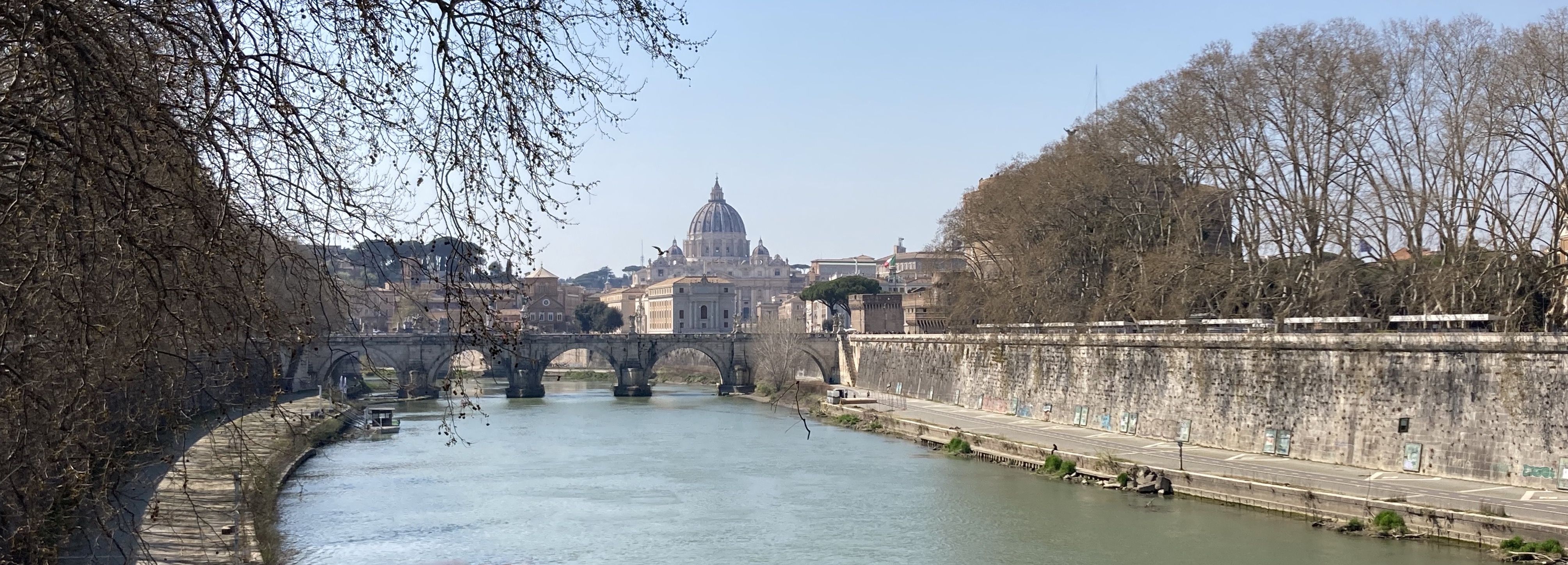 Princeton University Freshman Seminar FRS113 (2024-2026)Rise and Fall of the Roman FloodlineGeodesy, and the History of Roman FloodsSee also: Earth's Changing Surface & Climate — in California (2007-2009) Earth's Environments & Ancient Civilizations — in Cyprus (2011-2013) State of the Earth: Shifts and Cycles — in Spain (2015-2017) Earth: Crops, Culture, and Climate — in Italy (2019-2022) New Orleans, Aug 2005: hurricane Katrina caused an estimated 1400 fatalities and some $100 billion in property damage. Houston, Aug 2017: hurricane Harvey. One hundred deaths, $125 billion in estimated damages. New Jersey, Oct 2012: superstorm Sandy knocks out the power of two million households, damages or destroys 350,000 homes, and claims the lives of 38 people. Italy, May 2023: fifteen people were killed and fifty-thousand left temporarily homeless due to heavy rainfall and severe flooding. Rarely a year goes by without the world experiencing another “100-year storm”. Rome: flooded multiple times in its 2,500 years of development along the banks of the Tiber—and yet, la Città eterna! To understand what the future holds, we must turn to the past. Some 125 stone plaques in Rome mark highstands and inundations dating back almost 800 years. In this Freshman Seminar, we trace the history of the rise and fall of the river Tiber using the modern tools of geodesy. We introduce the quantitative geoscience of measuring the Earth (and planets): its shape, its rotation and deformation, and its dynamic gravity field. We discuss fundamental principles in the context of practical applications and outdoor on-campus field experiments, in preparation for the mandatory week-long Fall Break field trip to Italy! Course participants must have a valid passport and travel visa (and good shoes!) in hand prior to September 1, 2025. All costs for travel, logistics, and subsistence are born by the University. In Rome, we will accurately measure and map the elevation of known historical floodmarkers, placing them in the chronological context of urbanization, and interpreting them in the light of humanity’s attempts of controlling nature, learning lessons for our own parts of the world. While we focus on making first-hand, primary, contemporary measurements of historical events, we take a geological, long-term, viewpoint of the processes at work in shaping Earth’s changing surface and climate. When not using instruments to make precise measurements, or learning how to program statistical approaches to data analysis on the computer, we introduce important concepts shaping the Earth sciences today. We engage with the scientific literature and teach the skills to write and report about science in an informed non-specialist manner capable of reaching a wide audience. This is a science and technology laboratory class: come prepared with an aptitude for, and a willingness to learn, the quantitative aspects of scientific inquiry and numerical modeling. Scientific writing and computer programming are integral parts of this seminar and its assessment. In the classroom, around campus, and in the field abroad, using both instruments and your own senses, you gain practical experience collecting data in geographic context. You analyze these data using statistical techniques such as regression and geospatial analysis, while learning the programming language MATLAB. You write a research paper and typeset it in LaTeX. On the ground in Rome we will be joined by Dr. Eliza Richardson ('96) Marone, a seismologist, who, by sharing her research work in urbe, inspired us to create this Freshman Seminar, and by Dr. Kristel Chanard from IPGP Paris, an expert on geodesy.Department of Geosciences Professors Frederik Simons (2024-2026) and Adam Maloof (2024) are veterans of the Freshman Seminar program: Earth's Changing Surface & Climate, centered on field work in California, Earth's Environments & Ancient Civilizations conducted geoarcheological field work in Cyprus, State of the Earth: Shifts & Cycles, studied research sites in France and Spain, and Earth: Crops, Culture, and Climate went to Calabria in Italy. Coinstructor from the 2025 edition onward is Dr. Olivia Walbert. Student FeedbackFrederik Simons Last modified: Mon Sep 15 21:44:05 EDT 2025 |